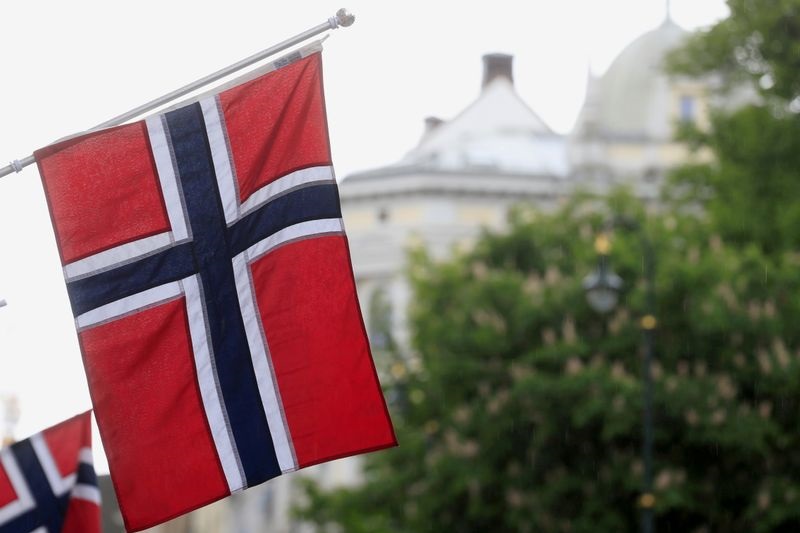By Geoffrey Smith
Investing.com -- European natural gas prices rose again on Monday as the prospect of a strike by Norwegian offshore gas field workers added to the woes of a market already battered by Russian supply cuts.
By 8 AM ET (1200 GMT), front-month futures for the Dutch TTF contract, which serve as a benchmark for northwest Europe, were up 8.0% at 159.73, up 8% from Friday's close and at their highest since the spike in prices that followed Russia's invasion of Ukraine in February.
Norway's gas output could fall by over 10% this week due to a strike by the Lederne labor union, who make up around 15% of the country's offshore petroleum workers who want a bigger pay raise to offset the impact of surging inflation. On Thursday, they had voted down a proposed wage agreement that had been negotiated by companies and union leaders.
The workers plan to begin a strike at three offshore fields on July 5 and to add three more fields the following day. A seventh field, Tyrihans, will have to shut down because its output is processed from the nearby Kristin field, which will shut down, according to Reuters.
The same strike will cut around 130,000 barrels a day off Norway's oil output. However, the impact will be greater on natural gas markets because of the vital importance of Norwegian supply, which has only grown since Russia - Europe's biggest supply source - started to cut shipments in retaliation for western sanctions that followed its invasion of Ukraine.
Fears have grown in recent days that Germany, in particular, will have to impose gas rationing this winter, shutting down a large part of its industrial base in order to ensure supplies to households and heating companies. German Trade Union Federation leader Yasmin Fahimi warned at the weekend that such measures could destroy certain sectors such as glassmaking and chemicals forever in Germany.
Russia has cut supplies to Germany by 60%, citing the failure of engineering group Siemens to return compression equipment after its routine maintenance. However, it has also cut supplies to Italy, which pass through a different pipeline, by the same amount. Supplies to Germany are set to fall - at least temporarily - to zero from next week, when the first string of the Nord Stream pipeline shuts down for a period of scheduled maintenance.
That will make it impossible for Germany to continue filling its storage facilities, which need to be at least 90% full by the start of the heating season in October in order to guarantee stable supplies, according to industry experts.
